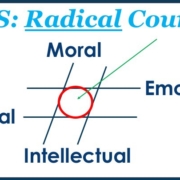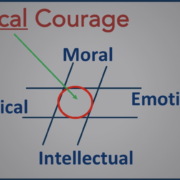Constructive Criticism Often Isn’t: Do This Instead
Providing and receiving feedback ranks among the workplace’s most anxiety-producing conversations. Here’s how to avoid awkwardness while helping people improve.
According to a Harris poll, sixty-nine percent of managers fear communicating with their employees. Providing feedback is the #1 most dreaded conversation.
A Gallup poll suggests that most people want feedback but only 26 percent report that the feedback they receive is helpful.
People want feedback to ensure their jobs are safe and improves their performance. Nobody likes criticism, and few people enjoy criticizing.
Criticism tends to invite defensiveness and resentment, neither of which improves performance or strengthens relationships.
Hence the dilemma: how do you help people perform better when both parties fear criticism? Here are six steps that improve future performance.
- Caring. People have to know that you care about them as people before they trust your feedback. Unless your employees believe you care, they’ll view even the most constructive criticism as evidence that you don’t like them. “Joan’s busting my chops because she hates me.”
Show you care by getting to know people as human beings rather than as human resources. Get to know their goals and aspirations, hobbies, families, and other matters vital to them. Ask them periodically about these parts of their lives, provide articles or posts they might find interesting, and ensure they have the time to engage in essential activities.
- Let them talk first. Start with their self-assessment. Ask your employee, “How did that go? What points do you want to sustain, and where do you want to improve?” They’ll most likely identify the most critical areas. If they miss something, ask, “Tell me more about ___.”
- Feedforward. Dwelling on the past doesn’t do much good and invites harm. Trying to get your employee to admit to failing is a power trip.
Focus instead on improving future performance. People tend to know when they are falling short and are often their own worst critics (see above). Ask, “How will you do it better next time?”
- Avoid unsolicited advice. When you give unsolicited advice, the other party tends to identify ways it won’t work.
When asked, offer advice and action steps because the employee is now open-minded. Avoid “here’s how I do it,” and use “Here are some ways you could do that; what will work best for you?”
- Ask for specific ways you can help. You need to let your employees know you’ve got their back and will support their efforts to improve.
Avoid vague questions like, “What can I do to help,” because you’ll mostly get noncommital answers or “Nothing I can think of right now.”
Ask, instead, “What’s one specific way I can help you improve __,” and follow through.
- Celebrate wins. After the next event or during your following 90-day review, ask, “What achievements make you the proudest?” and “In what ways have you improved?” before asking, “If doing even better were possible, what would you want to improve and how would you do that?”
These six steps will remove the anxiety from feedback sessions, strengthen your relationships, and improve your organization’s performance.
How are these steps working for you? I love celebrating your wins. Send me an email and let me know, or schedule a call.










